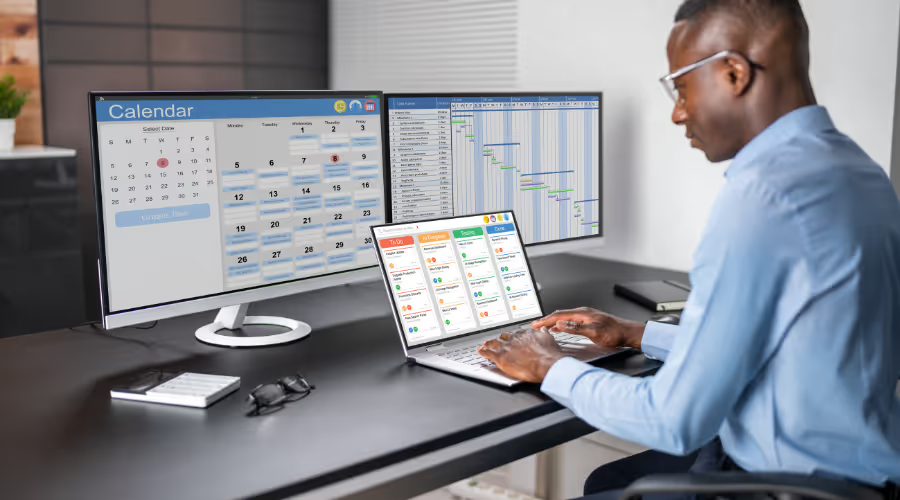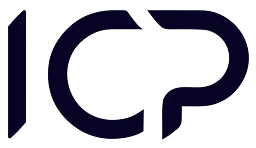7 tips for effective work time management
Managing work time is a real challenge for every employee.

Tell our team about your needs and we will customize the tool as part of your chosen package!
Managing work time is a real challenge for every employee. Everyone wants to manage their time better to complete tasks faster, create better opportunities for rest, or simply be more efficient in their daily activities. Effective work time management is also a challenge for managers, as they need to create conditions within the organization that allow for more efficient and productive work.In this article, we come with immense help, as we have used our extensive experience (and we guarantee that with building business processes in thousands of companies, we have plenty of it!) to select the best 7 tips that will help you manage your work time more effectively. These tips are for each of you to implemen t immediately and ultimately reap many benefits from them. So, shall we try to manage work time more efficiently?
Set priorities for your responsibilities
Focus on the most important tasks, plain and simple. Start each day by making a to-do list and marking the tasks that are most critical. Managing priorities is one of the key elements that will help you effectively manage your time. Some situations require immediate action, while other tasks can wait their turn. Remember this, as it is fundamental to your actions.To function even more effectively in this aspect, regularly review your priorities. Setting a priority is just the beginning of the steps to take. The world and professional situations change dynamically. Regularly review and update your priorities to ensure that you are always working on what has the greatest impact on achieving your goals. Flexibility in managing priorities allows for quick adaptation to new challenges and opportunities. In this, appropriate tools like IC Project can undoubtedly help manage tasks and appropriately prioritize work.
Plan your day in advance
Create a detailed plan, ideally spending a few minutes each evening planning the next day. Alternatively, you can use the end of your workday for this purpose. Prepare a schedule in which you allocate specific hours for completing individual tasks. This way, in the morning, you'll know exactly where to start, significantly reducing stress and increasing productivity. The better you have everything planned and prepared, the calmer your mind will be, and that's the key to success.

Remember to include breaks and unforeseen events in your plan. Planning your day too rigidly can lead to frustration when unexpected situations arise. Incorporate time for breaks and a buffer for unexpected tasks into your schedule. Such flexibility will allow you to maintain a smooth workflow even in the face of unforeseen events. Although we typically work, for example, 8 hours a day, unfortunately, this often doesn't reflect our actual productivity. During this time, you eat, drink, attend meetings, and perform many other activities that are not your actual planned tasks.
Avoid multitasking; sometimes simpler is better
Studies show that multitasking lowers efficiency and the quality of work. Focusing on a single task allows for a deeper immersion in the problem, leading to better results. Try to eliminate distractions and dedicate your full attention to one activity at a time. Of course, distractions can also include notifications from our smartphones. It's beneficial to use a special focus mode that helps avoid irrelevant notifications.A popular time management technique is the Pomodoro Technique. This method involves working in time blocks, such as 25 minutes of work followed by a 5-minute break. After four such cycles, take a longer break. This technique helps maintain a high level of concentration and efficiency throughout the day. The Pomodoro Technique has even evolved into the concept of time-blocking, which involves designating longer blocks of time for specific categories of tasks. If you must multitask, it's good to set a time interval dedicated solely to a particular type of task. This allows you to focus and work efficiently.
Utilize tools for time management and work organization
Modern technologies offer many tools that can help organize your time. Use applications like IC Project or Google Calendar to plan tasks, track progress, and remind yourself of important deadlines. Automating some aspects of planning can significantly streamline your work. Many people who have started working with such programs now cannot imagine working without them. They offer real convenience for everyday tasks, providing access to data in any chosen manner.Effective time management also involves regularly monitoring how you spend your time using time-tracking tools.
Delegate tasks – warning, it's not easy!
Don't try to do everything yourself. Determine which tasks can be completed by other team members and delegate them accordingly. Ensure that you provide clear instructions and set expectations to avoid misunderstandings. Unfortunately, we must immediately note that in many cases, this is a tough challenge.It might seem that getting rid of work is simple, perhaps for some. However, ambitious, high-quality-oriented individuals often struggle with this. They may think they can do everything best. Sometimes, the initial stages of delegation can be more time-consuming than completing the task yourself, but it is an investment in future time savings.

Delegating requires trust in others. Invest time in training and developing your colleagues so they can effectively take on certain responsibilities. This will give you more time for strategic activities and tasks that require your direct attention. It all requires forward-thinking, which is very important.
Limit meetings – dismiss meetings that can be emails
Only have meetings when necessary – that's the basic rule. Meetings can be major time-wasters, especially if they are poorly organized. Try to organize meetings only when they are really needed and have a clearly defined purpose. Ensure that every meeting has an agenda and lasts only as long as necessary. Dismiss meetings that could be emails – this is a popular trend in the market that we fully support.Remember also to conduct meetings efficiently. Take control of the meeting's flow, ensuring that you stick to the agenda and avoid digressions. End each meeting with a summary of decisions and tasks to be completed. This way, every participant will know what to do, minimizing the need for additional meetings.
Maintain work-life balance
Work should have clearly defined hours, after which you focus on your personal life. Set boundaries that allow you to rest and recharge. Avoid taking work home and try to fully enjoy your free time. Of course, this all depends on your approach. We understand that sometimes it’s not possible, and there are situations that require dedicating some evening time – we have no problem with that. However, you need to manage this appropriately, knowing that the better you take care of your recovery and time away from work, the more efficient you will be.Regular physical activity, a healthy diet, and adequate sleep have a huge impact on your productivity. Take care of your health to have more energy and better concentration at work. This will allow you to work more efficiently and spend your free time on activities that relax and please you.Implementing these seven tips will help you effectively manage your work time, increasing productivity and satisfaction with your tasks. We hope we have helped a little. All these elements come from our experience, having worked through numerous business processes. Work organization is the true key to success. Don’t implement every tip at once; choose key priorities, starting with the first point in effective time management. Remember, the key to success is consistency and continuously improving your skills.
Also read

Which is a benefit of collaboration and teamwork?
Working with others can feel slower and more complex than working alone, yet collaboration continues to play a key role in learning and work. In this article, we take a closer look at the real benefits of teamwork and why it often leads to better results.
Try IC Project in your company Our team is ready to help!

Create a free account and test with no obligation




.png)